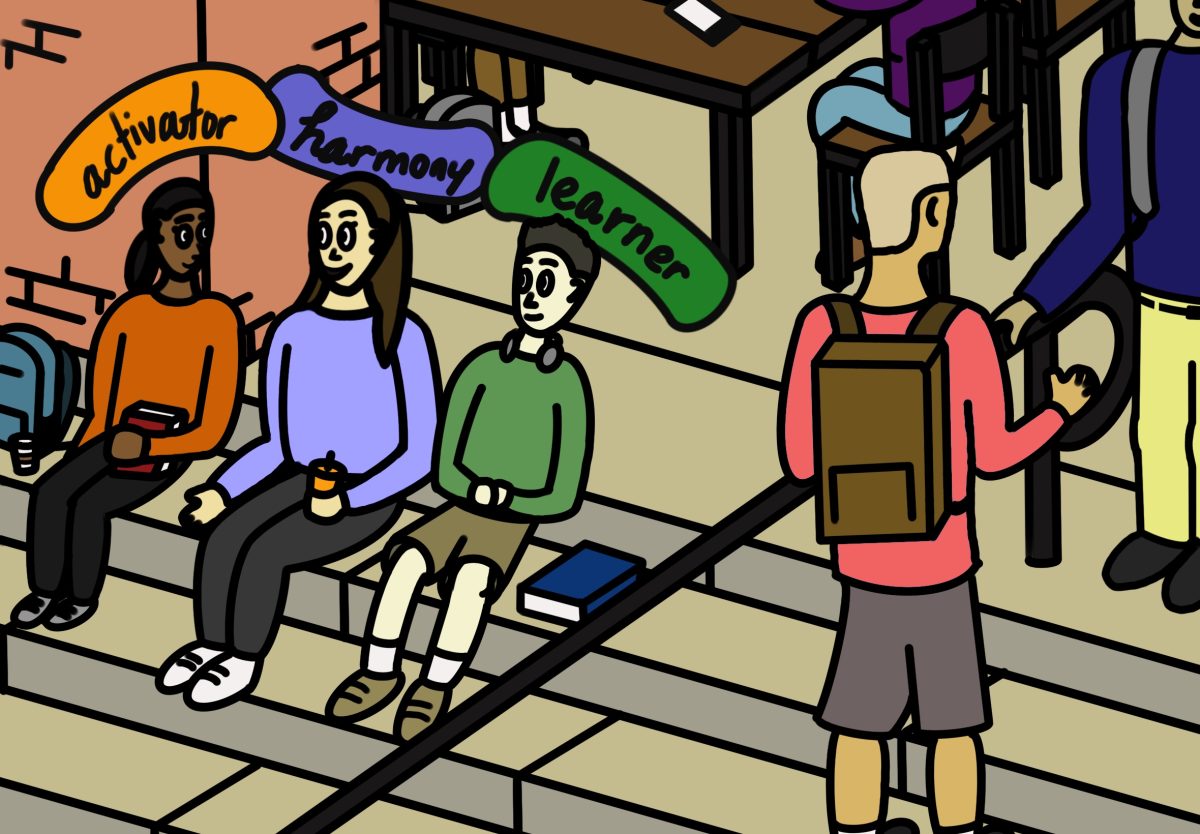Receiving recognition for something you worked hard to be skilled at is an unparalleled feeling. It’s a feedback loop of encouragement, leading to more jobs done well. Positive reinforcement is one of the best ways to help teach behavior, but it is all too rare in our generation. It almost feels like getting an A in a class is barely a source of pride — it really leaves something to be desired.
What’s missing is simple: personal connection. The difference lies between hearing “great job with that speech!” and “you delivered that speech so intelligently and clearly, well done!” Beyond a pat on the back, the latter comments on specific things that someone is good at.
CliftonStrengths, a program designed by the global advisory firm Gallup, has mastered the technique of pinpointing individuals’ assets. Their approach to facilitating self-improvement hinges upon one simple question: What would happen if we studied what was right with people, versus what’s wrong with them?
CliftonStrengths is no hidden secret on Furman’s campus – just about every student has heard of the 34 talent themes. In my experience as a Strengths Ambassador, I have developed a deeper understanding of the purpose of strengths, all while learning about my own. In Pathways, students are taught the basics, yet so many students will go through their time at Furman and never get to the true meat of CliftonStrengths.
It’s easy to learn the names of one’s talent themes and apply one’s own meaning to them. That’s no mistake – Gallup encourages that. However, students often judge their strengths too early. Students may see “Achiever” and immediately jump to making their own assumptions about what that means. The beauty behind the talent themes isn’t in each strength’s narrow definition, but rather how broad and inclusive they are.
Each strength is merely an umbrella term for a much larger idea. When a student delves into their strengths, they will find that the intricacies of how they are used is unique to the individual. Of course, we technically have more than five strengths. What the Clifton Strengths Assessment is measuring is how prevalent a specific strength is in your behavior.
For example, let’s use the strength “Context.” One student may use this strength when thinking about a specific idea, considering it in the context of other things they know. On the other hand, a student with the same strength could also use Context to think about the present in terms of the past and have the skills to consider how the actions of other people help explain their future behavior.
Furman provides many resources to help students explore their strengths. Individualized coaching, for instance, offers students one-on-one sessions focusing on one’s strengths and personal growth journey. These meetings can leave students with a whole new outlook on nearly every action they take.
Beyond offering coaches, Strengths at Furman employs Strengths Ambassadors to make the program accessible and personable for the Furman community. These ambassadors are students who have developed their strengths and receive special training in how to build the strengths of their peers. Their mindfulness about their own strengths naturally brings strengths conversations into the lives of everyone they interact with, helping bridge the gap between Furman’s institutional values and social culture.
CliftonStrengths at Furman is what you make of it. When looking for personal growth, strengths can show you what you’re best at and how to grow around those attributes. Socially, strengths can show you how different behaviors compliment one another. Professionally, strengths provide a language to help market oneself – and the confidence to back it up.
The more people who take time to adapt to strengths, the larger the community grows. Those of us already involved with strengths on campus know that being part of the community is like having group therapy at a jungle gym — a whole lot of growth with a whole lot of fun. We all speak the same language and have the desire to grow as people. Because at the end of the day, strengths are meant to be the start of a journey, not the end of it.
Joining the strengths community isn’t hard. One way to get started is to book a strengths one-on-one with Kim Keefer, the director of the Shucker Center for Leadership and a Gallup Certified Strengths Coach. The ambassadors love to describe these sessions as “better than therapy!” One-on-ones can be scheduled by emailing StrengthsDevelopment@furman.edu.
The Strengths community at Furman isn’t one locked away — it surrounds us. All it takes is an open mind and some intentional consideration of your own self-development.
To read Opinion Writer Emily Clancey’s take on Strengths at Furman, click here.



































